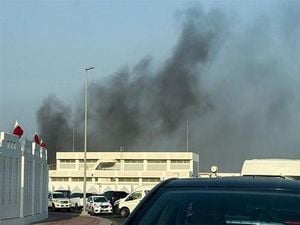A severe heatwave is affecting much of Brazil, bringing record-breaking temperatures and sparking widespread concern over health and safety. Starting on February 12, this heatwave is projected to last until February 21, bringing temperatures expected to soar 5 to 7 degrees Celsius above the usual February averages.
According to Climatempo, regions such as northern Paraná, southern Mato Grosso do Sul, São Paulo, Rio de Janeiro, Espírito Santo, Minas Gerais, eastern Goiás, western Bahia, and southern Piauí are set to experience extreme heat. Notably, Brazilian capitals, especially those in the Southeast, are anticipated to record their highest temperatures of the year. Reports suggest Rio de Janeiro may see temperatures nearing 40 degrees Celsius during this wave.
Currently, the highest temperature recorded this year in Rio de Janeiro stands at 38.7 degrees Celsius, measured on January 20 and 21. The upcoming surge could lead to even higher readings. Similar trends are anticipated across other major cities, such as São Paulo, where daytime highs could range from 34 to 35 degrees Celsius. Belo Horizonte and Vitória are also predicted to reach 34 to 37 degrees Celsius respectively.
The intense heat is explained by meteorologists as the result of sustained high-pressure systems leading to atmospheric blocking, which prevents cloud formation and hence, rainfall. This scenario causes increased heat retention and marked absence of relief from cooler weather.
While projections from recent studies indicated the alarming possibility of sensing temperatures of 70 degrees Celsius, experts have dismissed this as highly unlikely due to the prevailing humidity levels. Ricardo de Camargo from the University of São Paulo indicated, "Isso não é impossível de ocorrer, mas extremamente difícil" (This is not impossible, but extremely difficult). He emphasized the need for simultaneous conditions of high temperature and humidity to achieve such extreme thermal sensations, which appears improbable under current weather patterns.
Willians Bini, another meteorologist, reiterated this caution, stating, "A sensação térmica de 70°C só aconteceria se as duas condições fossem simultâneas, o que é extremamente difícil" (The felt temperature of 70 degrees Celsius would only occur if both conditions were simultaneous, which is extremely difficult). He explained how different meteorological variables typically do not align, producing extremes at varying rates.
Many Brazilians, accustomed to warm climates, are preparing for the impact of this heatwave on their daily activities. Not only does high temperature pose risks for outdoor plans—like exercise and leisure—but it also raises concerns about health conditions related to heat and air quality. The poor air quality, particularly prevalent during these scorching days, could aggravate issues for sensitive individuals, including children and the elderly.
Despite the challenges, awareness among locals about the extreme conditions is pivotal. It’s recommended to stay hydrated, wear lightweight clothing, and minimize outdoor activities during peak temperature periods. Understanding weather patterns and forecasts becomes increasingly important for planning daily activities amid such intense heat.
The returning warmth from the sun and minimal cloud cover may lead some to adapt by seeking comfort at local beaches and parks. That said, the conditions might also discourage outdoor gatherings, especially without proper sun protection or hydration strategies.
Looking to the future, experts remain vigilant, anticipating possible storms or weather changes as the week progresses. Most areas anticipate rain relief shortly after this oppressive phase of heat, particularly effective to cool temperatures regionally and improve air quality.
Meanwhile, residents and meteorologists alike keep their eyes on the skies, bracing for what this unyielding heatwave means for safety and comfort across Brazil. Comprehensive insights from weather bodies such as INMET coupled with local adaptations can greatly aid communities to navigate the extreme temperatures effectively.



